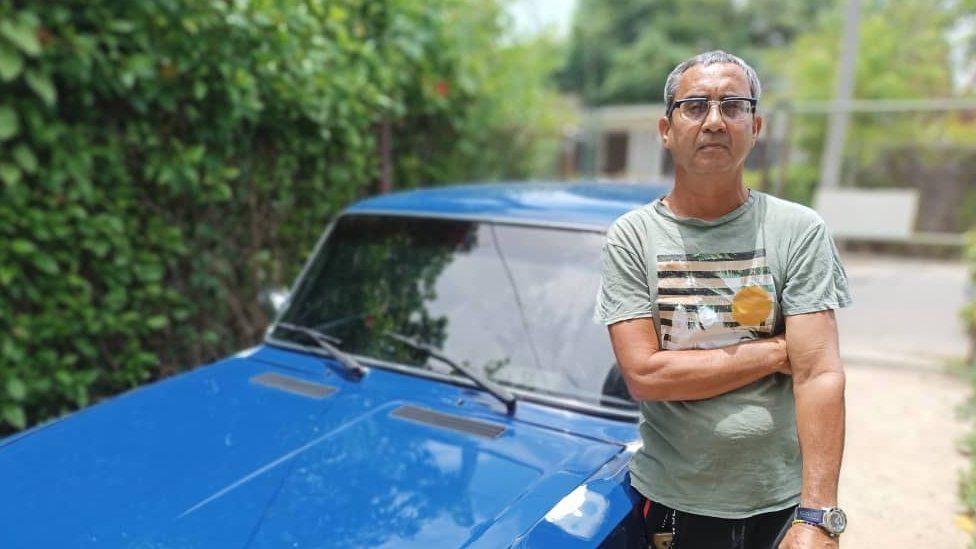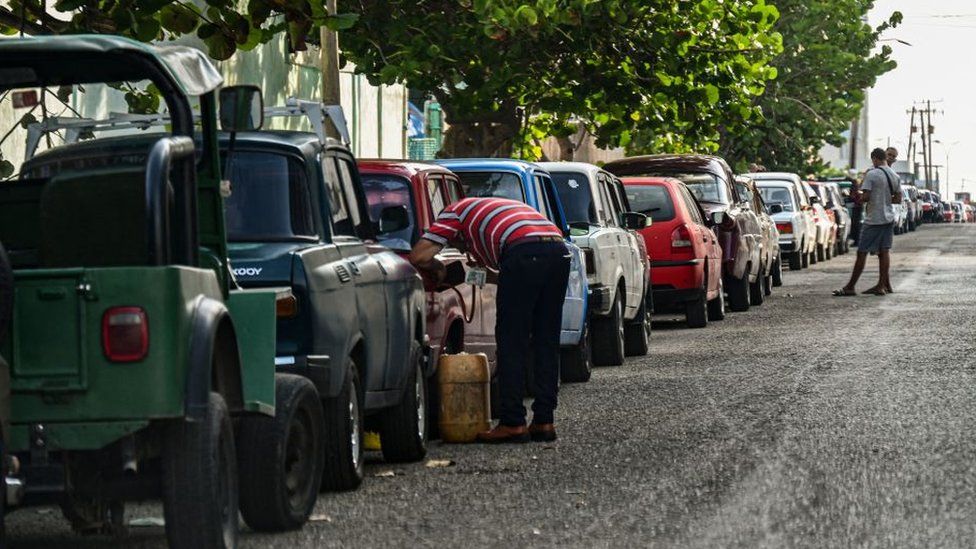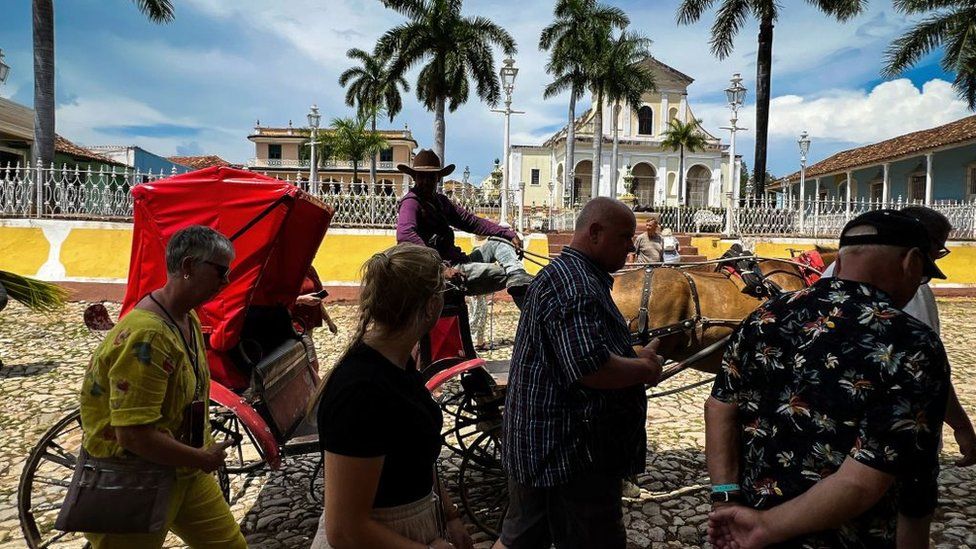Cuban taxi driver Jorge Lloro is reminded of his nation’s historic ties to Russia every time he gets behind the wheel of his navy blue, Soviet-era Lada.
His boxy Russian-made car is one of an estimated 100,000 that were imported to the Caribbean island during the Cold War.
Over the years, the fleet of Ladas arrived in Cuba as a means around the decades-long US economic embargo on the island.
Now, amid a crippling fuel crisis and a dire economic outlook, the island’s leadership has again turned to its old ally, Russia, for help.
For Jorge, it’s been a constant struggle to keep his car on the road – spare parts are scarce and expensive. Now, even filling the tank with petrol has become a days-long ordeal.
At the height of the crisis, the queues of cars at the petrol pumps stretched for several city blocks.
Eventually, the state had to organise the hordes of waiting drivers into WhatsApp groups. A state employee would take down your contact details and issue a number. When it was eventually your turn to fill up, you’d be contacted to come to the garage.
“I’m number 426,” explained Jorge as he drove us to a petrol station in Havana, having received an alert.

At the garage forecourt, though, no petrol was flowing after the tanker failed to arrive. “I don’t know why they even told us to come,” complained Jorge.
“This system is inefficient and ineffective,” echoed another driver, Joel Hernandez, who was expressing the exasperation of everyone in the queue.
“We’re not allowed to fill an entire tank, people often miss their number or aren’t informed when it’s their turn. It lacks proper organisation and infrastructure.”
For weeks, the fuel crisis has pushed the beleaguered Cuban people to the brink of desperation.
It’s the latest in a series of major challenges they have faced recently: food insecurity, inflation and electricity blackouts.
Cuba’s long-standing woes stem from government mismanagement and the US economic embargo, but were worsened by the collapse of the tourism industry during the coronavirus pandemic.
For some Russian companies, though, that has presented a unique opportunity.
At a recent trade forum in Havana, Cuba signed a series of agreements with Russian businesses covering everything from tourism and agriculture to energy.

Among the deals reached were concessions to Russian firms to revitalise parts of the island’s decrepit tourism infrastructure, including the decaying beach resort of Tarara.
There will also be a joint project to overhaul an obsolete sugar mill in Sancti Spiritus province, as well as investment in rum and steel production.
However, of most interest to Jorge and the other waiting drivers is an agreement for Russia to provide around 30,000 barrels of crude oil a day.
That would help make up a shortfall in the island’s domestic consumption after oil-rich socialist ally, Venezuela, dropped its crude oil exports to Cuba from 80,000 barrels a day in 2020 to around 55,000.
It’s being heralded in the Cuban state media as evidence of the two nation’s lasting ties. But the island’s leading independent economist, Omar Everleny, fears the decision to forge closer relations with Moscow is only a short-term fix for Cuba.
“When you’re putting out fires on several fronts, it’s attractive that Russia comes in to shore up that unstable situation. But the problem lies in the medium term,” he says.
The Russian firms will expect to be paid on time and in full for putting up the funds which Cuba so desperately needs, adds Mr Everleny.
“These aren’t Soviet companies giving out government credits. They’re private Russian firms who will demand a proper return on their investment.”

“Will that involve further sacrifices for Cuban families because we’ll have to pay back those credits or will there one day be another Putin figure who’ll forgive the debt?”, he says, referring to a decision in 2014 by Russian President Vladimir Putin to forgive some $32bn (£25bn) of Cuba’s debt.
Certainly, the new economic ties come at a particularly complex moment.
After Russia invaded Ukraine last year, Cuba has been one of Moscow’s few vocal supporters in Latin America, something clearly appreciated by the Kremlin.
During a recent visit by a high-level Cuban delegation to Moscow, Russian Defence Minister Sergei Shoigu was quoted in state media as saying: “Without a doubt, Cuba has been and continues to be Russia’s most important ally in the region.”
Maybe so, but economist Omar Everleny says Cuba cannot repeat the mistake of having a single benefactor to pull the island from its economic mire.
“It happened first with Spain, then the US, then the Soviet Union, then Venezuela. You can’t depend on a single market,” he says.
“I think Cuba needs to make its own production strategy – one in which the small and medium-sized private businesses – Cuban businesses – should play a key role.”
At the end of a sweltering day outside the petrol station, Jorge Lloro was eventually able to fill up his Lada.
But like the Cuban Revolution itself, it’s essentially running on fumes, only able to maintain momentum with Russia’s help and in need of a major overhaul in the years ahead.
Source : BBC
















